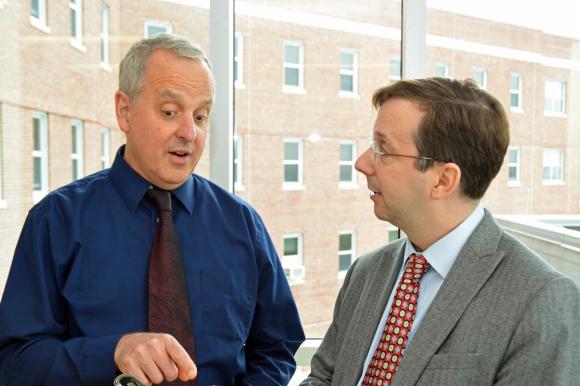
PROVIDENCE – The Rehabilitation Research and Development Center for Neuroresotration and Neurotechnology at the Providence V.A. Medical Center, or CfNN, received a five-year, $4.5 million funding renewal, the hospital announced last week.
The center is one of 12 centers in the United States funded through the U.S. Department of Veterans Affairs’ Rehabilitation Research and Development Service.
The CfNN is directed by neurologist and Brown University engineering professor Leigh Hochberg.
“We’re honored to have the opportunity to continue developing, testing and implementing neurotechnologies and other restorative therapies for veterans with disorders affecting mobility, limb function or mental health,” stated Hochberg. “Together with our academic partners, we look forward to creating a new generation of extraordinary rehabilitation therapies for veterans.”
The center is part of the BrainGate consortium, a group of scientists, researchers, engineers, mathematicians and medical professionals dedicated to restoring the communication, mobility and independence of people with neurologic disease, injury or limb loss.
Since the center’s launch in 2012, its researchers have led the development of advanced neural interfaces for veterans and others with amyotrophic lateral sclerosis, spinal cord injury and other forms of paralysis. The center noted that it had also expanded its research in using brain imaging and new brain stimulation methods to develop and improve treatments for other conditions important to veterans, such as post-traumatic stress disorder, major depression and chronic pain.
Chris Bergenheim is the PBN web editor.












